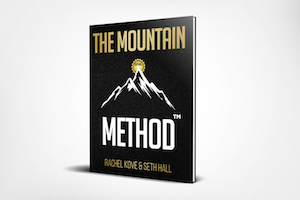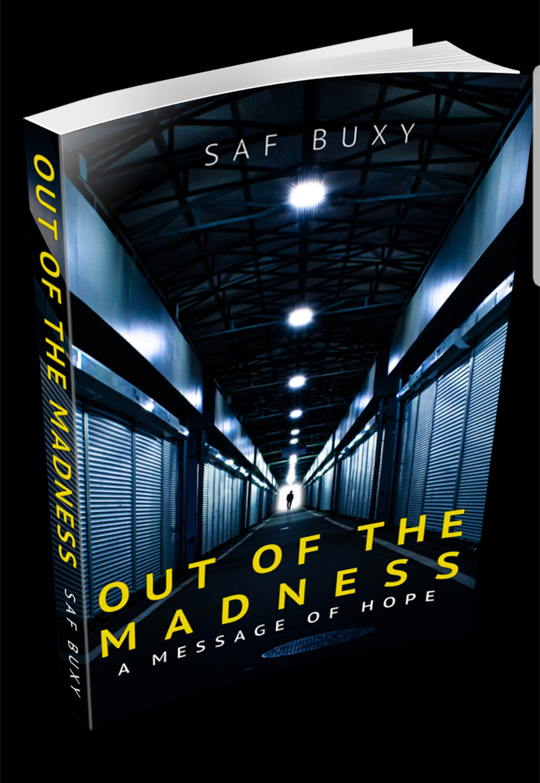 History is taught through stories; the young gather at the knees of their elders and listen. The elders may not only be gathered to speak, to inform, but may also be gathered to heal themselves. I am a person who often doesn't know how I feel or what I need until I write it or somehow articulate it out loud. The telling of my story is not only for your eyes; it is also for my own understanding. After a recent talk I gave on the correlation of multi-generational trauma and addiction, several attendees approached and began to share aspects of their personal stories. We were united, connected at a deep, communal level in understanding the pain of traumatic childhood experiences that haunt, and hinder, many of us to this day. We share our personal stories of trauma to help disempower the traumatic event. Traumatic experiences leave us feeling exposed and vulnerable, stripped by circumstances beyond our personal control. Many of us suffer in silence. We are too ashamed to share our traumatic experience with anyone, afraid others will judge us, or use it against us somehow. Many of us don't have the words to describe what has happened to us; others of us have pushed the memories so far underground that words alone can't excavate.
History is taught through stories; the young gather at the knees of their elders and listen. The elders may not only be gathered to speak, to inform, but may also be gathered to heal themselves. I am a person who often doesn't know how I feel or what I need until I write it or somehow articulate it out loud. The telling of my story is not only for your eyes; it is also for my own understanding. After a recent talk I gave on the correlation of multi-generational trauma and addiction, several attendees approached and began to share aspects of their personal stories. We were united, connected at a deep, communal level in understanding the pain of traumatic childhood experiences that haunt, and hinder, many of us to this day. We share our personal stories of trauma to help disempower the traumatic event. Traumatic experiences leave us feeling exposed and vulnerable, stripped by circumstances beyond our personal control. Many of us suffer in silence. We are too ashamed to share our traumatic experience with anyone, afraid others will judge us, or use it against us somehow. Many of us don't have the words to describe what has happened to us; others of us have pushed the memories so far underground that words alone can't excavate.
Description
My intention in writing this book is to share with you the story of my own trauma and the difficult, often circuitous and self-destructive path I took to acceptance, forgiveness, and love. First, tenuously, acceptance of those who had hurt me. Acceptance, in time, unfolded into forgiveness. The longer, harder path was to learn to love myself: it can be easier to love others than it is to truly love our own flawed, fragile selves. My hope is to show that suffering is not meaningless, and that, in fact, the very thing that brings us pain can, in time and with care, bring us a sense of liberation and purpose. I believe that inherent in suffering is an opportunity to transform pain and consciously use the experience as a progenitor of a new way of being, a new way of living, a new way of seeing the world, and perhaps being able to help others do the same. We are all unique individuals, many of us with deep wounds from our pasts. But we do not need to let those scars define or defeat us. The shape of my life, including my career as a psychologist and specialist in community-wide crisis management, was imprinted on my psyche by traumatic events in my early childhood. My journey of self-exploration, of learning and deeply knowing myself, required, requires still, years of reflection and personal reckoning. Looking back at my formative years and experiences, my travels in search of spiritual meaning and comfort, and the arduous route to recovery from alcoholism, I know that all these elements in time formed my perspective, my work, and my very soul. While my life was filled with poor decisions and bad choices, my experiences created the tapestry of Me. Colored in hues dark and brooding alongside bright tones of lightness and hope, all threads twist and intertwine. I can no sooner disentangle this complicated tapestry now than I can predict its completion.
About The Author
Dr. Johanna O'Flaherty, PhD, is an expert in crisis management from a psychological perspective, and a renowned expert in the field of trauma, addiction, and recovery. She was the Vice President of Treatment Services at the Betty Ford Center from 2006 to 2013, before serving as CEO of the Las Vegas Recovery Center, Senior Fellow of Clinical Services, from 2013 to 2016. She is an Advanced Level Nationally Certified Addiction Specialist, a Certified Employee Assistance Professional (CEAP), and a Certified Trainer for Critical Incident Crisis Debriefing Programs. She received her Doctorate of Philosophy in Clinical Psychology from Pacifica Graduate Institute in California. In addition, Dr. O'Flaherty adds her 44- years of personal recovery to her long list of accomplishments. Dr. O'Flaherty developed and implemented Crisis Response Programs for Pan American World Airlines, TWA Airlines, and has facilitated the training of Crisis Response Teams for several other airlines as well. In her role as Corporate Manager of Pan American Airways' Management of Employee Assistance Programs (EAP's), she was responsible for the oversight of bio-psycho-social-spiritual aspects of the 1988 Lockerbie disaster. In 1988, she also founded an educational program for chemically dependent women in Calcutta, India through Catholic Charities. In 1996, she provided counseling services to the family members of 230 individuals who perished in New York on TWA Flight 800, the third-deadliest aviation accident in US history. In 2000, she received the FBI's "Exceptional Service in the Public Interest" award. In 2001, Dr. O'Flaherty was called to New York to assist with counseling airline employees and facilitating the Crisis Response training for the New York City Transit Authority after the terrorist attacks of September 11th. She has conducted critical incident response training for the FBI and first responders. Dr. O'Flaherty continues to provide counseling to the first and last responders of the October 1, 2017 massacre at the Route 91 Harvest Music Festival on the Las Vegas Strip, at which 58 people were killed and another 546 injured. The incident is the deadliest mass shooting committed by an individual in the US, and has reignited the debate over gun laws. She is the author of two previous books: "The Correlation Between Trauma and Addiction" (2014) and "Daddy Goes to Meetings" (2015). She maintains a consulting practice and an active schedule as a keynote speaker in crisis management and addiction. Dr. O'Flaherty has been featured on CBS, ABC, NBC, and CNN as well as several podcasts as an expert in her field. Dr. O'Flaherty lives in Las Vegas, Nevada.



